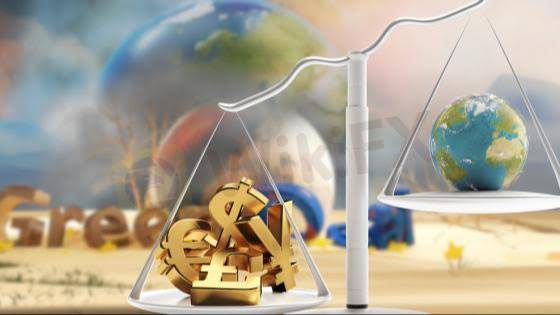
2025-02-12 17:09
IndustryEconomic impact of climate change policies
#firstdealofthenewyearastylz
Climate change policies can have both positive and negative economic impacts. The specific effects depend on the type and scope of policies implemented.
Positive Economic Impacts
1. *Job creation*: Transitioning to a low-carbon economy can create new job opportunities in renewable energy, energy efficiency, and sustainable infrastructure.
2. *Economic growth*: Investing in clean technologies and infrastructure can stimulate economic growth, improve productivity, and increase competitiveness.
3. *Cost savings*: Improving energy efficiency and reducing energy consumption can lead to cost savings for households, businesses, and governments.
4. *Improved public health*: Reducing air pollution from fossil fuels can improve public health, reducing healthcare costs and increasing productivity.
Negative Economic Impacts
1. *Transition costs*: Transitioning to a low-carbon economy can require significant upfront investments, potentially leading to higher costs for businesses and consumers.
2. *Job displacement*: Policies aimed at reducing greenhouse gas emissions can lead to job losses in industries that rely heavily on fossil fuels.
3. *Increased energy costs*: Policies that promote renewable energy sources, such as carbon pricing or subsidies for renewables, can lead to higher energy costs for consumers.
4. *Competitiveness concerns*: Climate change policies can affect the competitiveness of businesses, particularly those in energy-intensive industries.
Policy Recommendations
1. *Gradual phase-in*: Implement policies gradually to allow businesses and households to adjust.
2. *Support for affected industries*: Provide support for industries and workers affected by the transition to a low-carbon economy.
3. *Investment in clean technologies*: Invest in research and development of clean technologies to reduce costs and improve efficiency.
4. *Carbon pricing*: Implement carbon pricing mechanisms, such as carbon taxes or cap-and-trade systems, to provide a financial incentive for reducing emissions.
5. *International cooperation*: Encourage international cooperation to ensure a level playing field and avoid competitiveness concerns.
Like 0

Temmy2151
Broker
Hot content
Industry
Event-A comment a day,Keep rewards worthy up to$27
Industry
Nigeria Event Giveaway-Win₦5000 Mobilephone Credit
Industry
Nigeria Event Giveaway-Win ₦2500 MobilePhoneCredit
Industry
South Africa Event-Come&Win 240ZAR Phone Credit
Industry
Nigeria Event-Discuss Forex&Win2500NGN PhoneCredit
Industry
[Nigeria Event]Discuss&win 2500 Naira Phone Credit
Forum category

Platform

Exhibition

Agent

Recruitment

EA

Industry

Market

Index
Economic impact of climate change policies
 Hong Kong | 2025-02-12 17:09
Hong Kong | 2025-02-12 17:09#firstdealofthenewyearastylz
Climate change policies can have both positive and negative economic impacts. The specific effects depend on the type and scope of policies implemented.
Positive Economic Impacts
1. *Job creation*: Transitioning to a low-carbon economy can create new job opportunities in renewable energy, energy efficiency, and sustainable infrastructure.
2. *Economic growth*: Investing in clean technologies and infrastructure can stimulate economic growth, improve productivity, and increase competitiveness.
3. *Cost savings*: Improving energy efficiency and reducing energy consumption can lead to cost savings for households, businesses, and governments.
4. *Improved public health*: Reducing air pollution from fossil fuels can improve public health, reducing healthcare costs and increasing productivity.
Negative Economic Impacts
1. *Transition costs*: Transitioning to a low-carbon economy can require significant upfront investments, potentially leading to higher costs for businesses and consumers.
2. *Job displacement*: Policies aimed at reducing greenhouse gas emissions can lead to job losses in industries that rely heavily on fossil fuels.
3. *Increased energy costs*: Policies that promote renewable energy sources, such as carbon pricing or subsidies for renewables, can lead to higher energy costs for consumers.
4. *Competitiveness concerns*: Climate change policies can affect the competitiveness of businesses, particularly those in energy-intensive industries.
Policy Recommendations
1. *Gradual phase-in*: Implement policies gradually to allow businesses and households to adjust.
2. *Support for affected industries*: Provide support for industries and workers affected by the transition to a low-carbon economy.
3. *Investment in clean technologies*: Invest in research and development of clean technologies to reduce costs and improve efficiency.
4. *Carbon pricing*: Implement carbon pricing mechanisms, such as carbon taxes or cap-and-trade systems, to provide a financial incentive for reducing emissions.
5. *International cooperation*: Encourage international cooperation to ensure a level playing field and avoid competitiveness concerns.
Like 0
I want to comment, too
Submit
0Comments

There is no comment yet. Make the first one.

Submit
There is no comment yet. Make the first one.